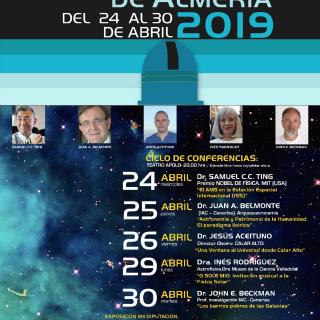Bibcode
Dicaire, I.; Carignan, C.; Amram, P.; Hernandez, O.; Chemin, L.; Daigle, O.; de Denus-Baillargeon, M.-M.; Balkowski, C.; Boselli, A.; Fathi, K.; Kennicutt, R. C.
Bibliographical reference
Monthly Notices of the Royal Astronomical Society, Volume 385, Issue 2, pp. 553-605.
Advertised on:
4
2008
Citations
69
Refereed citations
63
Description
This is the second part of an Hα kinematics follow-up survey of
the Spitzer Infrared Nearby Galaxies Survey (SINGS) sample. The aim of
this paper is to shed new light on the role of baryons and their
kinematics and on the dark/luminous matter relation in the star-forming
regions of galaxies, in relation with studies at other wavelengths. The
data for 37 galaxies are presented. The observations were made using
Fabry-Perot interferometry with the photon-counting camera FaNTOmM on
four different telescopes, namely the Canada-France-Hawaii 3.6-m, the
ESO La Silla 3.6-m, the William Herschel 4.2-m and the Observatoire du
mont Mégantic 1.6-m telescopes. The velocity fields are computed
using custom IDL routines designed for an optimal use of the data. The
kinematical parameters and rotation curves are derived using the GIPSY
software. It is shown that non-circular motions associated with galactic
bars affect the kinematical parameters fitting and the velocity gradient
of the rotation curves. This leads to incorrect determinations of the
baryonic and dark matter distributions in the mass models derived from
those rotation curves.
Based on observations made with the ESO 3.60-m telescope at La Silla
Observatories under programme ID 076.B-0859 and on observations obtained
at the Canada-France-Hawaii Telescope (CFHT) which is operated by the
National Research Council of Canada, the Institut National des Sciences
de l'Univers of the Centre National de la Recherche Scientifique of
France and the University of Hawaii.
E-mail: isabelle [at] astro.umontreal.ca (isabelle[at]astro[dot]umontreal[dot]ca) (ID);claude.carignan [at] umontreal.ca (claude[dot]carignan[at]umontreal[dot]ca)
(CC) ‡
Visiting Astronomer, Canada-France-Hawaii Telescope, operated by the
National Research Council of Canada, the Centre National de la Recherche
Scientifique de France and the University of Hawaii.
Related projects

Kinematic, Structural and Composition Studies of the Interstellar and Intergalactic Media
The basic objective of the broject is to investigate the evolution of galaxies by deepening our understanding of the interaction between the insterstellar medium and the stars.The main technique which we use is the two-dimensional kinematic study of whole galaxies observed using our instrument:GHaFaS, a Fabry-Perot interferometer on the William
Prof.
John E. Beckman